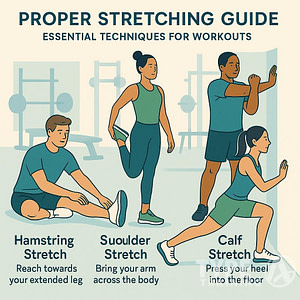Understanding the role of nutrition is key to improving your sleep quality.
Magnesium and tryptophan are among the critical nutrients that have been shown to support better sleep.
These nutrients can be found in various foods, and incorporating them into your diet may help enhance your sleep experience.
Popular posts:
Magnesium is known for its relaxing properties and benefits in treating insomnia. It can be found in foods like leafy greens, nuts, seeds, and whole grains.
Tryptophan, an amino acid, plays a crucial role in producing serotonin, a neurotransmitter that promotes sleep. Foods rich in tryptophan include turkey, chicken, and soy products.
Other nutrients such as melatonin and serotonin also contribute to healthy sleep patterns.
Including a variety of nutrient-rich foods in your meals can create a natural foundation for improved rest.
By focusing on these specific nutrients, you can significantly impact the quality of your sleep and overall well-being.
Understanding the Basics of Sleep and Nutrition
Sleep and nutrition are deeply interconnected, influencing one another in various ways. An understanding of how dietary habits impact sleep can empower you to make better choices for improved sleep health and general well-being.
The Importance of Sleep for Health
Sleep is a fundamental component of your overall health, impacting physical and mental well-being. Adequate sleep aids in cognitive performance, immune function, and emotional regulation.
During sleep, your body repairs tissues, consolidates memory, and balances hormones.
Insufficient sleep can lead to a host of issues, including impaired cognitive abilities and increased risk of chronic conditions such as obesity and heart disease.
Prioritizing restful sleep can lead to improved daily functioning and long-term health benefits.
Overview of Dietary Nutrients
The nutrients you consume play a significant role in determining sleep quality.
Specific nutrients, such as magnesium and tryptophan, are known to support sleep health.
Magnesium helps relax muscles and induce a state of calm, potentially improving sleep quality. Foods rich in magnesium include dark leafy greens and nuts.
Tryptophan, an amino acid present in protein-rich foods, serves as a precursor to serotonin, which regulates sleep.
Incorporating these nutrients into your diet can assist in enhancing your sleep quality.
A varied diet that includes fruits, vegetables, and whole grains is beneficial for overall sleep support, ensuring that you get a wide range of essential nutrients.
Interplay Between Diet and Sleep Quality
Your diet can significantly affect how well you sleep. The quality of the food you eat, the macronutrients they contain, and your eating behaviors play vital roles in influencing sleep patterns and overall sleep quality.
Link Between Diet Quality and Sleep Patterns
The quality of your diet is linked to better sleep patterns. Consuming a balanced diet rich in vegetables, fruits, and whole grains can promote restful sleep.
Certain foods contain sleep-promoting nutrients such as magnesium and tryptophan. Magnesium helps relax muscles and calm the nervous system, which can improve sleep.
According to some studies, individuals with higher diet quality report fewer sleep disturbances and better sleep duration.
Influence of Macronutrients on Sleep
Macronutrients, including carbohydrates, proteins, and fats, impact sleep quality differently.
Carbohydrates can increase serotonin production, which encourages sleepiness. A diet with complex carbohydrates, such as whole grains, is often linked to improved sleep quality.
Protein intake, particularly foods high in tryptophan, aids in the production of sleep-inducing hormones like melatonin. Fats, especially healthy fats like those from avocados or nuts, may also support stable sleep patterns.
Effects of Eating Behaviors on Sleep
Your eating behaviors, such as meal timing and portion size, can influence sleep.
Eating large meals or heavy snacks close to bedtime may cause discomfort and disrupt sleep. Light evening meals with foods rich in tryptophan, magnesium, or complex carbohydrates can enhance relaxation.
Dietary habits that include late-night eating are associated with altered sleep cycles and decreased sleep quality.
Adopting consistent meal times and avoiding caffeine or sugar late in the day can promote healthier sleep patterns.
Role of Specific Nutrients in Sleep Regulation
Nutrient intake plays an essential role in sleep regulation, influencing various bodily processes and neurotransmitter production.
Here, you will learn how specific nutrients can impact sleep duration, quality, and disorders.
Magnesium and Its Impact on Sleep
Magnesium is crucial for maintaining normal muscle and nerve function. It influences sleep by regulating neurotransmitters that send signals throughout the nervous system.
Studies highlight magnesium’s role in increasing sleep efficiency, reducing sleep onset latency, and alleviating conditions like insomnia. Foods rich in magnesium include almonds, spinach, and avocados.
A systematic review shows how magnesium supplementation might improve sleep quality.
Its calming effect on the nervous system helps reduce anxiety, further promoting restful sleep. Ensuring adequate magnesium intake can significantly impact your sleep patterns.
Tryptophan as a Precursor to Sleep-Inducing Neurotransmitters
Tryptophan is an essential amino acid that acts as a precursor to serotonin, a neurotransmitter involved in sleep regulation. It’s also converted into melatonin, the hormone responsible for sleep-wake cycles.
Consuming tryptophan-rich foods like turkey, chicken, and seeds can boost your body’s serotonin and melatonin production.
Research illustrates how tryptophan supplementation can effectively improve sleep latency and mood. A narrative review indicates its positive impact on circadian rhythms, providing a path toward restful nights.
Including tryptophan in your diet can enhance overall sleep quality by supporting neurotransmitter synthesis.
Omega-3 Fatty Acids: Their Impact on Brain Health and Sleep
Omega-3 fatty acids play a vital role in brain health and function, which indirectly affects sleep. These healthy fats, found in fish, flaxseeds, and walnuts, are known for their anti-inflammatory properties.
They also aid the production of serotonin and dopamine, essential for regulating mood and sleep.
Studies suggest omega-3 supplementation can reduce the risk of sleep disorders in children and adults. The link between omega-3s and diminished anxiety further illustrates its potential to improve sleep quality.
Ensuring sufficient omega-3 intake supports brain health, potentially leading to better sleep.
Calcium: Its Role in the Production of Melatonin and Regulation of REM Sleep
Calcium is essential for the production of melatonin, the hormone that regulates sleep patterns. It works with tryptophan to facilitate melatonin synthesis, influencing REM sleep cycles.
Dairy products, leafy greens, and fortified foods are excellent calcium sources that can enhance sleep duration.
Research highlights calcium’s ability to support deep sleep. Findings suggest that adequate calcium levels contribute to restorative sleep stages.
By incorporating calcium-rich foods into your diet, you can promote melatonin production and improve REM sleep regulation.
Vitamin B6: Its Involvement with Tryptophan
Vitamin B6, also known as pyridoxine, is crucial for the conversion of tryptophan into serotonin and melatonin. This vitamin aids in the synthesis of neurotransmitters involved in sleep regulation.
Foods like chickpeas, tuna, and bananas are rich in vitamin B6 and benefit both mood and sleep.
A meta-analysis reveals that adequate vitamin B6 can enhance serotonin levels, promoting better sleep.
By supporting the conversion process of tryptophan, B6 plays a pivotal role in maintaining a balanced sleep cycle. Including vitamin B6 in your diet can ensure efficient utilization of tryptophan.
Other Nutrients Influencing Sleep Quality
Various other nutrients contribute to sleep quality, each having a unique role.
Zinc and selenium are co-factors in the production of melatonin, while iron deficiencies can lead to restless leg syndrome, hindering sleep quality. Vitamin D also influences sleep by regulating mood and circadian rhythms.
A review on nutrient impacts illustrates the broader spectrum of dietary factors in sleep quality.
These nutrients offer potential pathways to combat sleep disorders. Focusing on a balanced diet with these nutrients can support overall sleep health.
Scientific Evidence on Nutrition and Sleep Outcomes
Current research highlights the interplay between dietary patterns and sleep outcomes. Observational studies and clinical trials have shed light on how specific nutrients and overall diet impact sleep quality and duration.
Observational Studies on Diet and Sleep Patterns
Observational studies reveal a notable correlation between diet and sleep patterns.
Diets rich in fruits, vegetables, and whole grains show associations with improved sleep duration and quality. Meanwhile, diets high in fats and sugars often correlate with shorter sleep duration and poorer sleep quality.
Diets containing foods high in tryptophan, an amino acid precursor to melatonin and serotonin, have shown promise in improving sleep quality.
These studies emphasize the importance of balanced dietary patterns in maintaining healthy sleep habits and suggest that altering dietary intake could be a valuable tool in addressing sleep issues.
Clinical Trials and Sleep-Related Interventions
Randomized clinical trials provide more controlled insights into diet-sleep relationships.
Certain trials have tested the impact of specific nutrients, such as magnesium and melatonin-rich foods, on sleep outcomes. Results indicate that increasing dietary magnesium intake may improve sleep efficiency and decrease the time it takes to fall asleep.
Interventions involving diets rich in tryptophan have shown positive effects on sleep latency and quality. Similarly, experiments focusing on overall dietary improvements suggest significant enhancements in sleep metrics.
These findings underline the potential for targeted dietary changes to serve as effective interventions for improving sleep health.
Nutritional Strategies for Improving Sleep Disorders
Addressing sleep disorders like insomnia can greatly benefit from strategic nutritional approaches. Exploring dietary supplements and refining eating habits can positively impact sleep quality and duration.
Dietary Supplements for Sleep Enhancement
Certain dietary supplements are known for promoting better sleep.
Magnesium is notable for its ability to influence neurotransmitters that facilitate sleep. Consuming magnesium-rich foods, like green leafy vegetables, can be beneficial.
Tryptophan, an amino acid, contributes to the production of serotonin and melatonin. You can enhance your intake by consuming foods such as turkey and pumpkin seeds.
Valerian root and melatonin supplements are also commonly used to manage sleep disorders.
Consulting a healthcare professional is important before starting any supplements to tailor strategies to your specific needs and conditions.
Eating Habits and Sleep Hygiene
Adjusting eating habits can significantly impact sleep quality.
Consuming low-glycemic-index carbohydrates, like whole grains, in the evening can aid in promoting sleep.
Integrating chrono-nutrition strategies, such as timing your meals earlier in the evening, plays a crucial role in aligning your body’s circadian rhythm.
Incorporating fruits like cherries, which are natural sources of melatonin, has been shown to aid sleep.
Maintaining consistent meal times is essential for enhancing sleep hygiene, helping regulate your internal clock, and reducing sleep disturbances.
Reducing caffeine and alcohol intake, especially later in the day, can further support improved sleep quality.
Special Considerations in Nutrient Intake and Sleep
Nutrient intake affects your sleep quality and quantity, with various effects observed across different populations and life stages.
Impact of Deficient or Excessive Nutrient Intake
Deficient nutrient intake can lead to sleep disturbances.
For instance, insufficient magnesium, which plays a critical role in muscle relaxation, might cause difficulty falling or staying asleep.
In contrast, excessive consumption of stimulants like caffeine may lead to insomnia or fragmented sleep.
Balancing nutrients like tryptophan is crucial.
Studies indicate that consuming tryptophan-free diets significantly affects the arousal index and REM sleep quality.
You should aim to balance nutrient intake to support optimal sleep health and avoid extremes that could lead to adverse effects.
Dietary Nutrition in Different Life Stages and Populations
Nutritional needs vary according to life stages or specific groups.
Adolescents require more nutrients to support their rapid growth, affecting their sleep habits.
Adults may need to adjust their nutrient intake as they age since dietary needs can shift with changes in metabolism or health conditions.
Addressing nutrient deficiencies or excesses can help optimize sleep quality among diverse groups.
Additionally, individuals experiencing sleep deprivation might benefit from tailored dietary modifications to address their unique needs and enhance sleep quality.
Practical Implications and Recommendations
Nutrient-rich dietary patterns can significantly enhance sleep quality and duration. Understanding which foods improve sleep and how they fit into overall consumption patterns is key for better rest.
Optimizing Dietary Patterns for Better Sleep
To improve sleep quality, focus on diets rich in magnesium and tryptophan.
Magnesium, found in nuts and leafy greens, can help regulate sleep by relaxing muscles and nerves.
Tryptophan, present in turkey and dairy, is a precursor to serotonin, aiding the sleep cycle.
Incorporate these nutrients within balanced meals to support sleep.
Eating patterns that follow a Mediterranean or balanced diet, abundant in whole grains, fruits, and healthy fats, have been linked to better sleep.
Avoid heavy meals close to bedtime to prevent discomfort that can disrupt rest.
Sleep Time Duration and Diet Recommendations
Proper sleep duration depends on age. Adults generally need 7-9 hours per night.
Diet influences this, so align your eating behavior accordingly.
Consuming meals high in complex carbohydrates and proteins earlier in the day supports longer sleep cycles.
Avoid stimulants like caffeine and sugar late in the day to prevent sleep disturbances.
Evening meals should be lighter and include foods rich in sleep-promoting nutrients.
Consistent meal timing helps regulate your internal clock, fostering a healthy sleep-wake cycle.
Frequently Asked Questions
The impact of certain nutrients on sleep, like magnesium and tryptophan, can be profound. Different foods contain these essential nutrients, influencing sleep quality, patterns, and duration.
What foods are rich in nutrients that promote better sleep quality?
Foods such as nuts, leafy greens, and whole grains are known to be rich in magnesium. These foods can contribute positively to your sleep pattern. Tryptophan is found in poultry, dairy, and soy products and is known to enhance sleep quality.
How can tryptophan intake affect sleep patterns and duration?
Tryptophan intake has been linked to improvements in sleep efficiency and sleep latency.
Tryptophan supplementation can lead to increased total sleep time and is often more effective at doses of at least 1 gram per day.
In what ways does magnesium contribute to the improvement of sleep?
Magnesium can help you sleep longer and improve sleep quality by reducing tiredness.
It’s important to consult with a healthcare provider before adding magnesium supplements to your diet to ensure they are appropriate for you.
How does tryptophan metabolism influence overall health and sleep?
Tryptophan plays a crucial role in serotonin production, which can affect mood and sleep.
Depletion of tryptophan, particularly at specific times of the day, can increase the arousal index and alter REM sleep patterns.
What is the recommended dosage of l-tryptophan for enhancing sleep?
For optimal effects on sleep, a dosage of at least 1 gram of l-tryptophan is recommended for improving sleep factors such as efficiency and latency.
It’s essential to adjust the dosage based on individual needs and consult with a healthcare professional.
What period is required for tryptophan to effectively impact serotonin levels?
The timing and daily intake of tryptophan are crucial for its efficacy in increasing serotonin levels. Consuming sufficient amounts consistently can enhance its benefits on sleep patterns and mood regulation.















